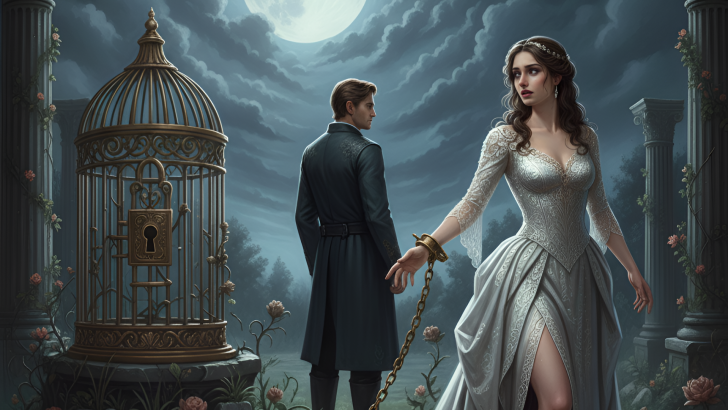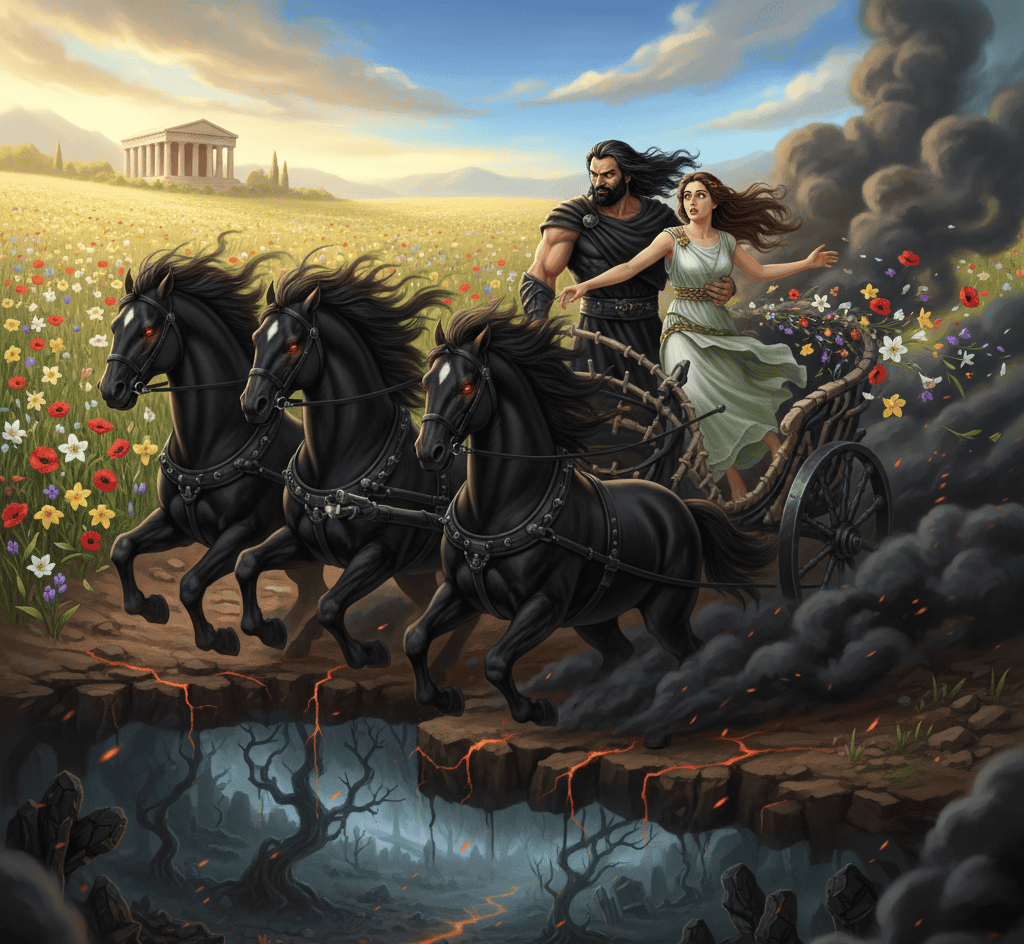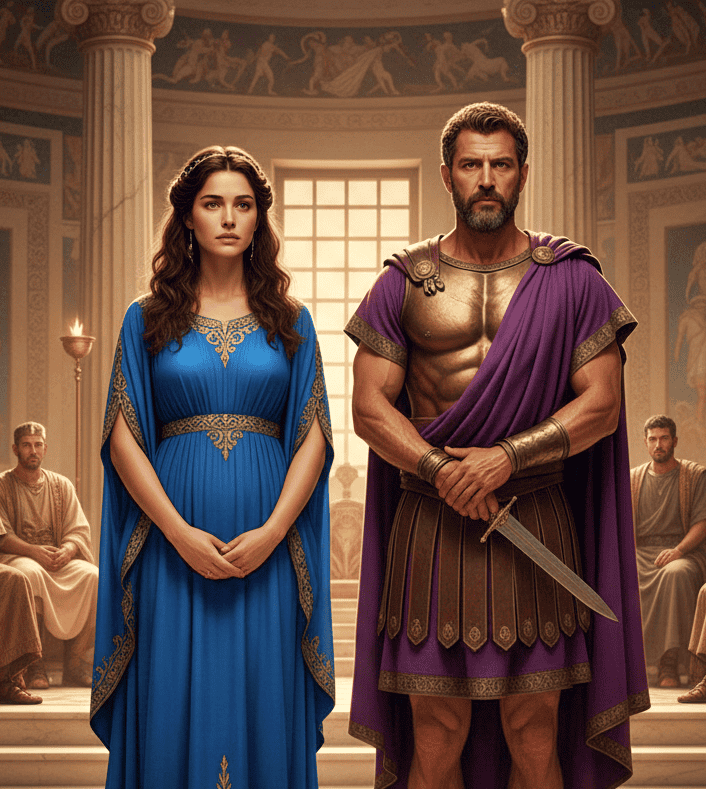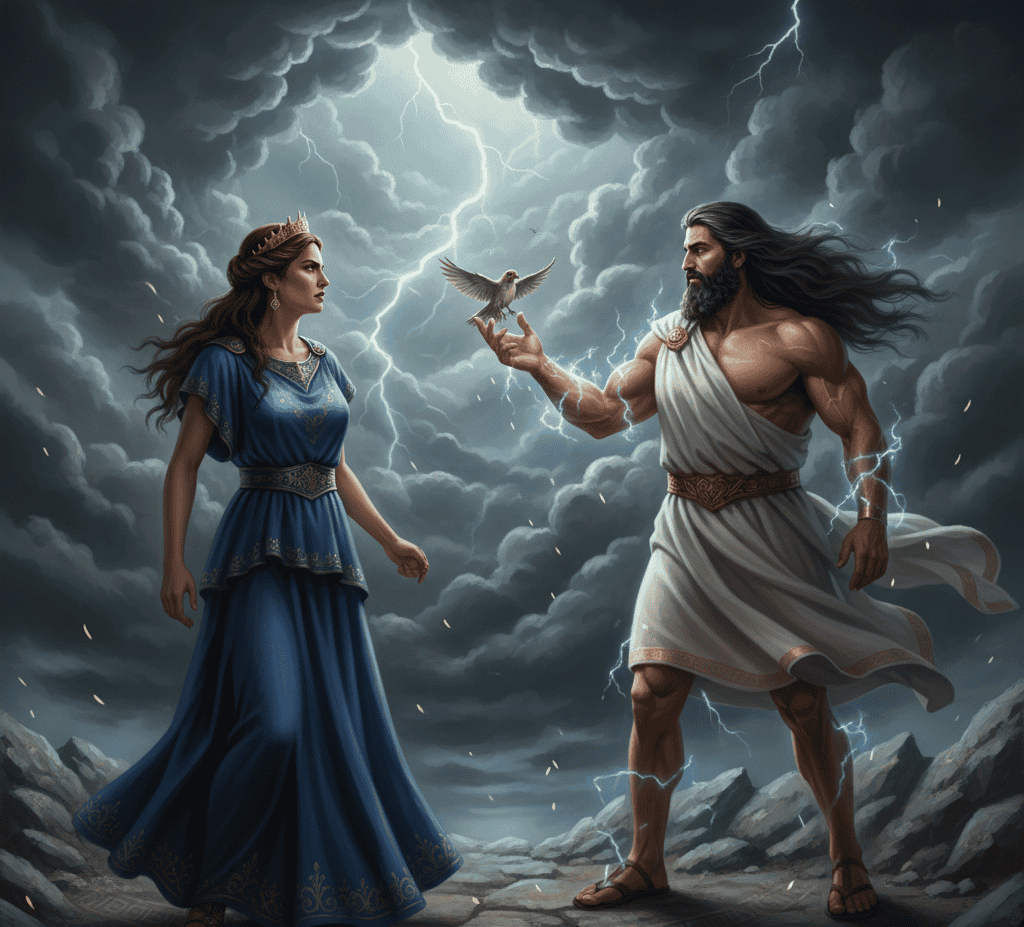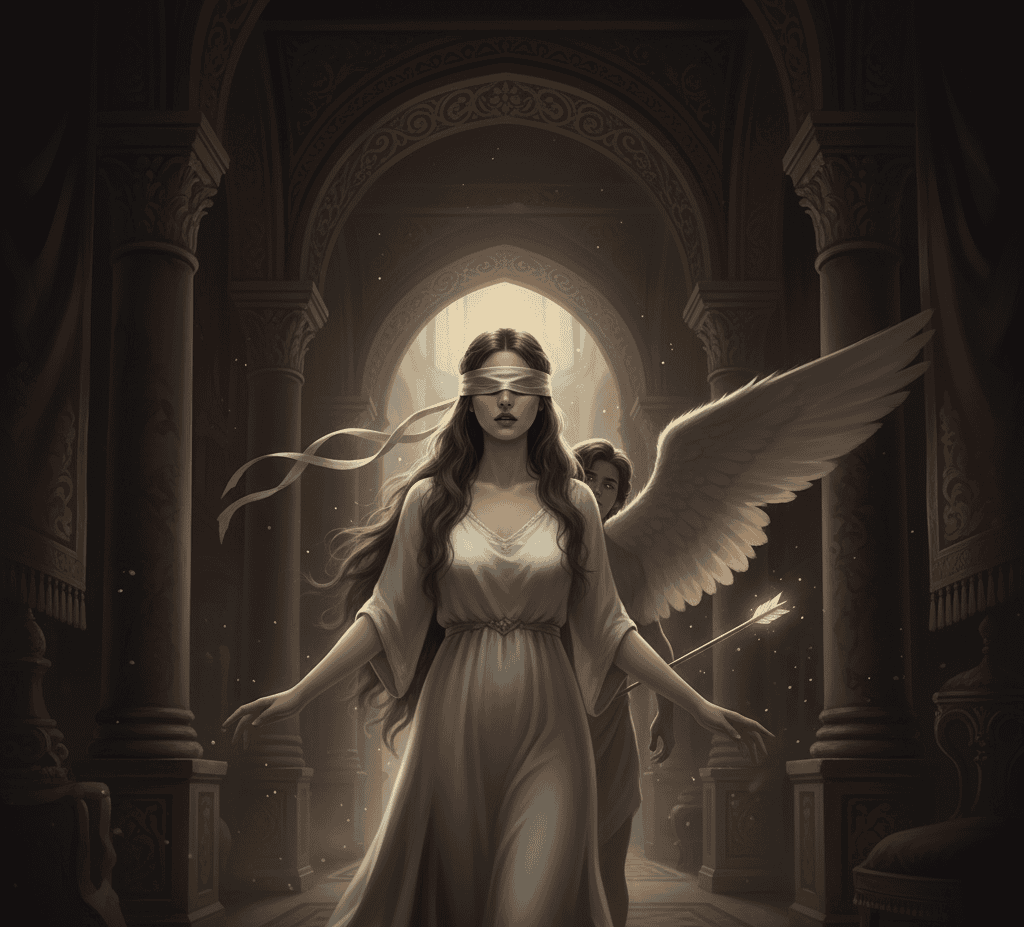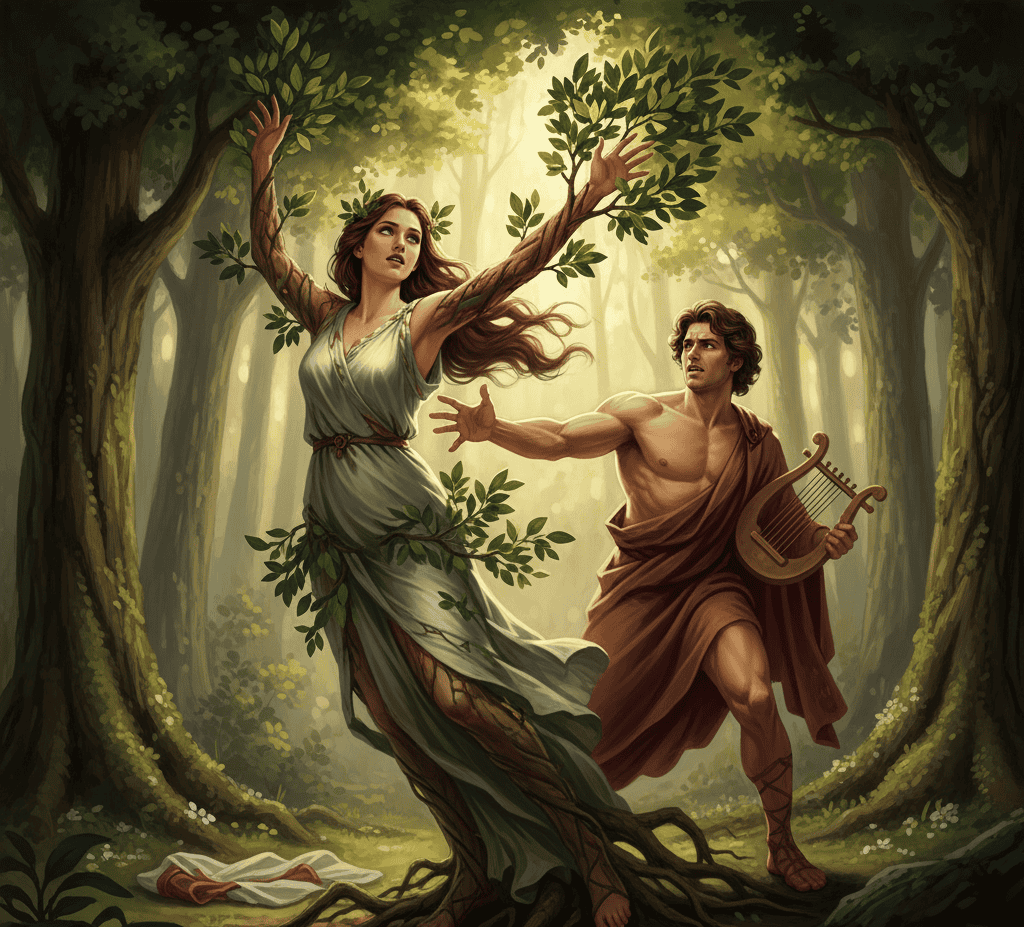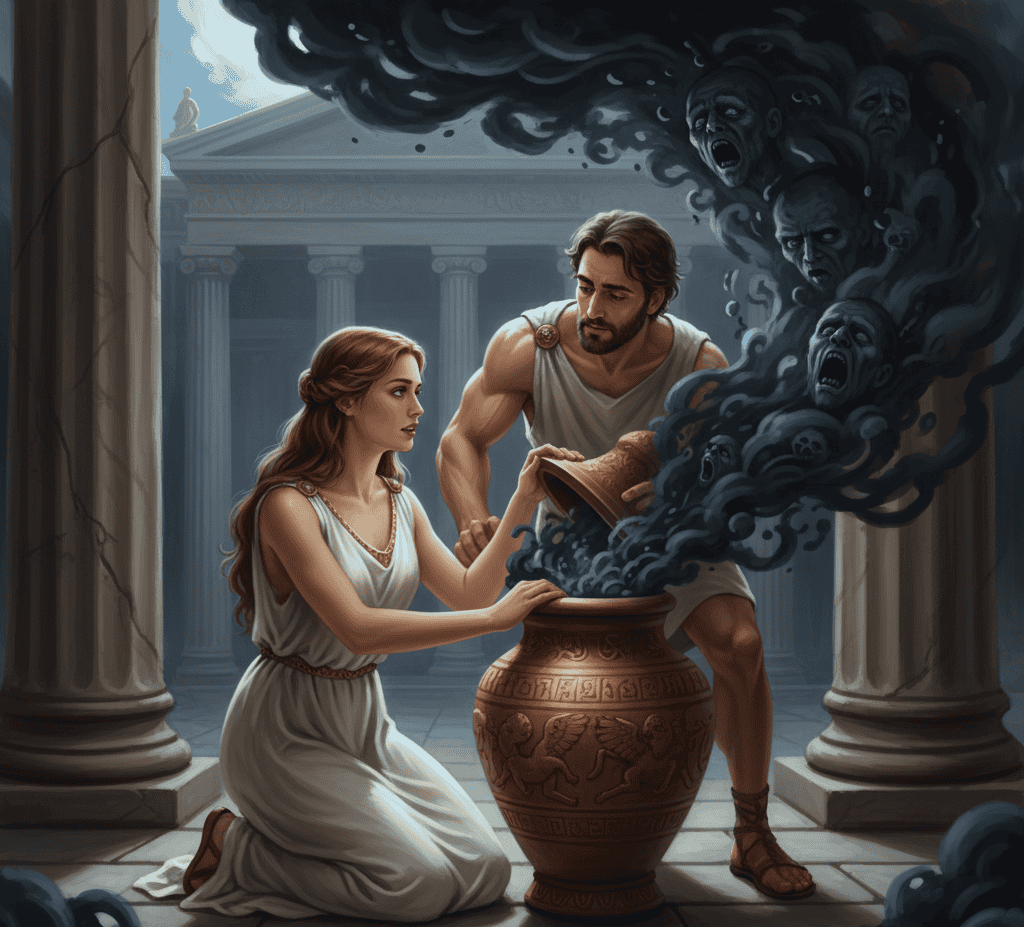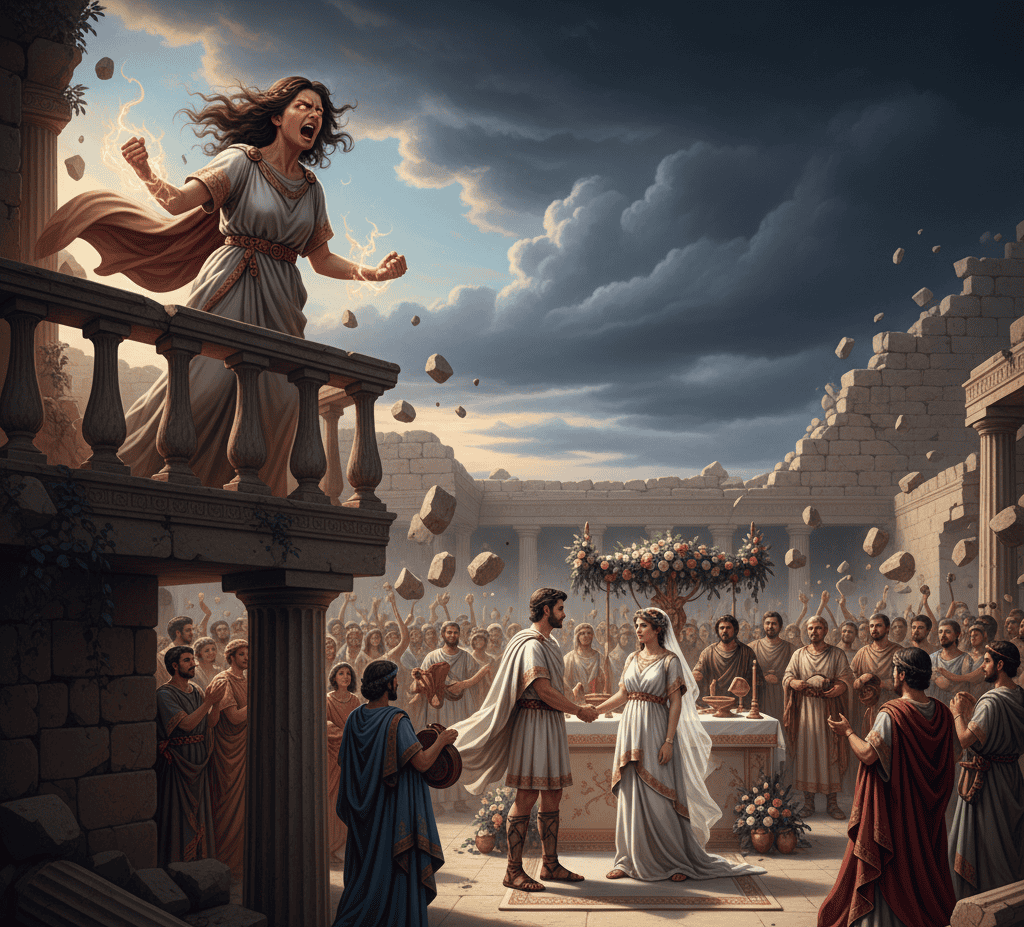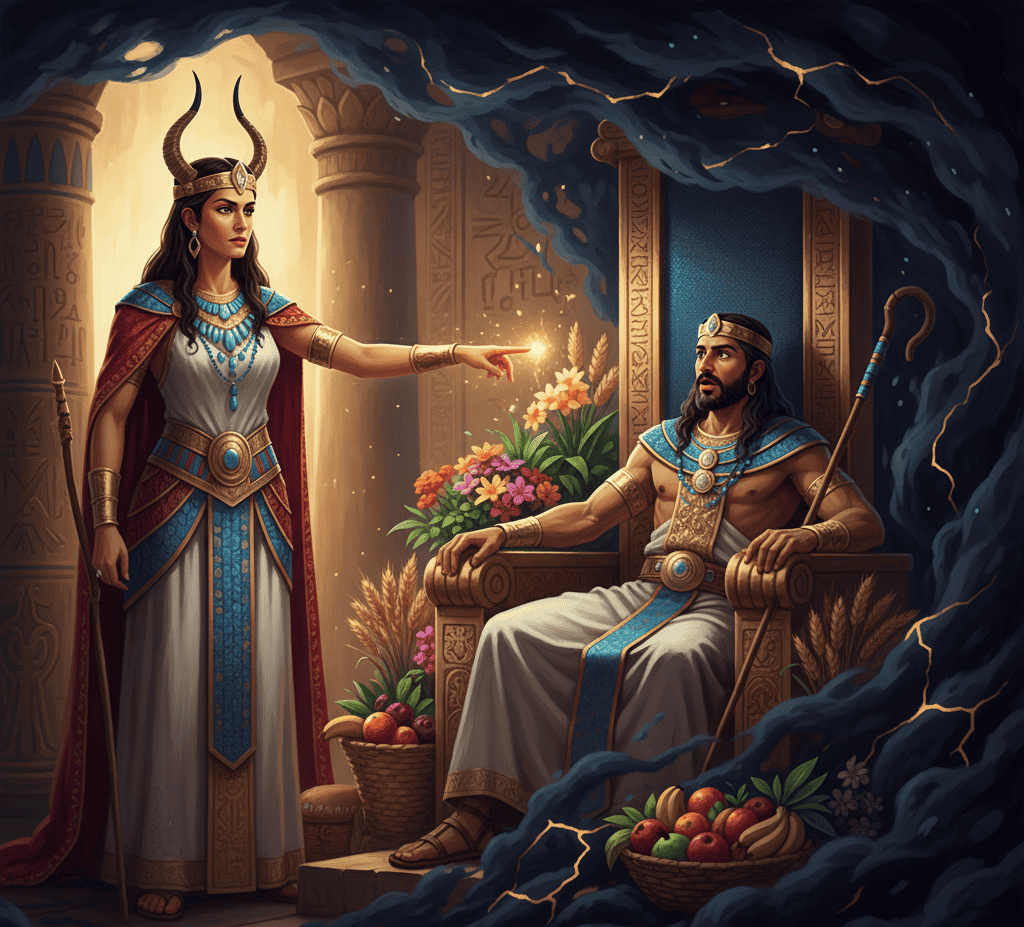Marriage in myth is not always a story of joy and devotion. Many times it was used as a tool of power, control, or punishment.
Gods forced mortals into unions they did not want, while mortals sometimes found themselves trapped by trickery or divine manipulation.
These 10 myths reveal how marriage could be more of a cage than a celebration.
1. Persephone and Hades
Persephone’s story is one of the most famous tales of marriage as a trap. She was gathering flowers when the earth split open and Hades rose in his chariot, seizing her and pulling her into the Underworld.
There was no proposal and no choice. She became queen of the dead because her captor demanded it.
Even when Zeus and Demeter arranged her partial return, Persephone was bound by the pomegranate seeds she had eaten.
The cycle of seasons was born, but at its heart was a young goddess caught between a mother’s love and a husband she had never wanted.
2. Helen and Menelaus
Helen of Troy was known as the most beautiful woman in the world, but her marriage to Menelaus was shaped less by love and more by strategy.
When many kings sought her hand, her father made them swear an oath to defend her marriage, ensuring peace for Greece.
Menelaus won, but Helen’s later flight with Paris shows how little attachment she felt to her husband. For her, marriage was a political arrangement rather than a bond of affection.
The union ignited a war that dragged on for ten years, destroying countless lives, showing how forced unions could ripple into chaos.
3. Hera and Zeus
The queen of the gods herself began her marriage under duress. Zeus disguised himself as a helpless bird, and when Hera took pity and cradled him, he revealed his true form and assaulted her.
To avoid shame, she agreed to marry him. What followed was a marriage full of quarrels, jealousy, and betrayal. Hera was bound to the most powerful god, yet she spent much of her divine life in resentment.
Their union, instead of being a model of love, became one of Olympus’s most bitter partnerships, marked by endless strife.
4. Andromeda and Perseus
Andromeda was chained to a rock as a sacrifice to a sea monster when Perseus arrived. After slaying the beast, he claimed her as his bride.
It sounds heroic, but Andromeda’s wishes are rarely mentioned. She went from being punished for her mother’s pride to being married off as a prize of victory.
Perseus’s rescue was also a claim of possession, and Andromeda had little say in the matter.
Her story highlights how women in myth often shifted from one form of captivity to another, with marriage itself serving as a new chain.
5. Psyche and Cupid
Psyche’s union with Cupid is often told as a romantic fairy tale, but at its start, it was a marriage born of fear and trickery.
After angering Venus with her beauty, Psyche was cursed to wed a monster. She was abandoned on a cliff, swept away to a mysterious palace, and joined with an unseen husband who only came to her in darkness.
Though Cupid was no monster, Psyche’s first experience of marriage was one of dread and confusion.
Love blossomed later, but it began as a binding forced by divine command, with her own desires silenced by fear of the unknown.
6. Daphne’s Escape from Apollo
Daphne’s story is unique because she never allowed herself to be trapped in marriage at all. Apollo pursued her relentlessly, struck by desire after being wounded by Cupid’s arrow.
Knowing she would be claimed against her will, Daphne begged for escape. She was transformed into a laurel tree, forever untouched by marriage or possession.
Her tale shows how the threat of a forced union was so terrifying that she chose transformation over life as Apollo’s unwilling bride. For Daphne, marriage was not love, but a cage she refused to enter.
7. Pandora and Epimetheus
The first woman in Greek mythology, Pandora, was created as a trap. The gods fashioned her with beauty and charm, then sent her as a gift to Epimetheus despite warnings never to accept gifts from Zeus.
Their union was designed to unleash misfortune upon humankind. With Pandora came the jar that released all evils into the world, leaving only hope behind.
This was no marriage of love or partnership. It was a divine punishment in disguise, showing how marriage itself could serve as a tool of vengeance rather than joy.
8. Medea and Jason
Medea fell in love with Jason because the gods willed it, helping him secure the Golden Fleece with her magic. She abandoned her family and homeland to marry him, only to discover that her devotion was a trap.
Jason later betrayed her by seeking a new wife, leaving Medea cast aside. Though their marriage began with passion, it was never built on equality.
Medea’s sacrifices bound her, while Jason felt free to discard her when ambition called. Their tragic story shows how love can disguise itself as a cage, where one partner is sacrificed for the other’s gain.
9. Ariadne and Theseus
Ariadne helped Theseus escape the labyrinth by giving him the thread to retrace his steps, betraying her father in the process.
In return, Theseus promised marriage and carried her away from Crete. Yet on the island of Naxos, he abandoned her, leaving her to wake alone on the shore.
The promise of marriage had been nothing more than bait to win her help. Though she later found happiness with Dionysus, her first union was revealed as a cruel trap.
Ariadne’s story reflects how vows could be used as tools of manipulation rather than genuine commitment.
10. Inanna and Dumuzi
In the Mesopotamian myth, the goddess Inanna married the shepherd god Dumuzi. Though he was tied to fertility and abundance, their union became a burden.
When Inanna descended into the Underworld, she sought someone to take her place. She found Dumuzi on her throne, enjoying power without mourning her absence.
In anger, she condemned him to spend half the year in the realm of the dead. Their marriage was less about love and more about obligation and resentment.
The cycle of seasons came from this imbalance, but at its root was a partnership where affection gave way to bitterness and punishment.

自出生以来,我一直感觉到自己与神灵有着紧密的联系。作为一名作家和导师,我的使命是帮助他人在最黑暗的时刻找到爱、幸福和内心的力量。

